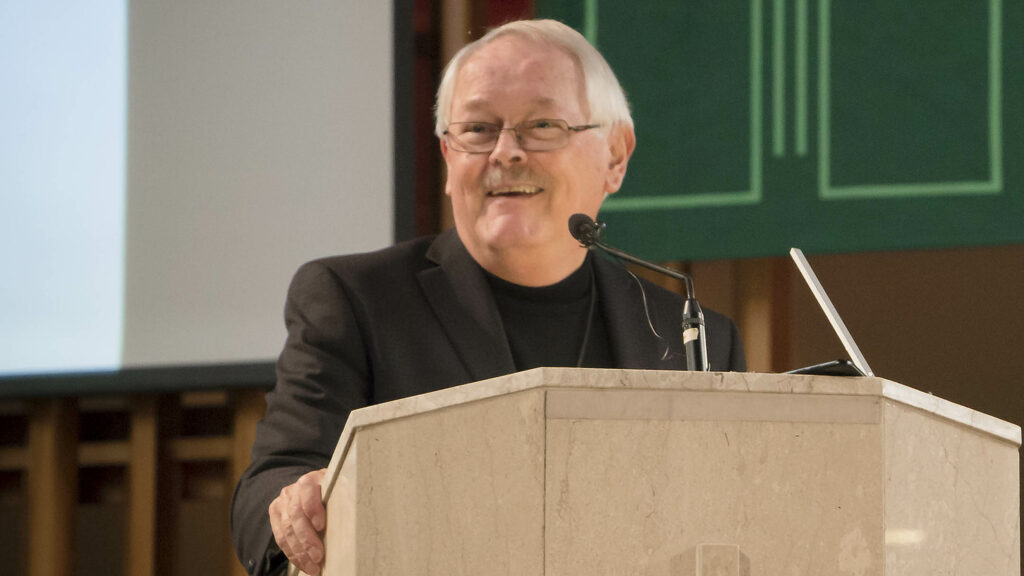Our culture doesn’t give us easy permission to mourn. Its underlying ethos is that we move on quickly from loss and hurt, keep our griefs quiet, remain strong always, and get on with life.
But mourning is something that’s vital to our health, something we owe to ourselves. Without mourning our only choice is to grow hard and bitter in the face of disappointment, rejection, and loss. And these will always make themselves felt.
We have many things to mourn in life: We are forever losing people and things. Loved ones die, relationships die, friends move away, a marriage falls apart, a love we want but can’t have obsesses us, a dream ends in disappointment, our children grow away from us, jobs are lost, and so too one day our youth and our health. Beyond these many losses that ask for our grief there’s the need to grieve the simple inadequacy of our lives, the perfect symphony and consummation that we could never have. Like Jephthah’s daughter, all of us have to mourn our inconsummation.
How? How do we mourn so that our mourning is not an unhealthy self-indulgence but a process that restores us to health and buoyancy?
There’s no simple formula and the formula is different for everyone. Grieving, like loving, has to respect our unique reticence, what we’re comfortable with and not comfortable with. But some things are the same for all of us.
First, there’s the need to accept and acknowledge both our loss and the pain which with we’re left. Denial of either, loss or pain, is never a friend. The frustration and helplessness within which we find ourselves must be accepted, and accepted with the knowledge too that there’s no place to put the pain except, as Rilke says, to give it back to earth itself, to the heaviness of the oceans from which ultimately comes the saltwater which makes up our tears. Our tears connect us still to the oceans that spawned us.
Next, mourning is a process that takes time, sometimes a lot of time, rather than something we can achieve quickly by a simple decision. We cannot simply will our emotions back to health. They need to heal and healing is an organic process. What’s involved?
In many instances there’s the need to give ourselves permission to be angry, to rage for a time, to allow ourselves to feel the disappointment, loss, unfairness, and anger.
Loss can be bitter and that bitterness needs to be accepted with honesty, but also with the courage and discipline to not let it have us lash out at others. And for that to happen, for us not to lay blame and lash out at others, we need help.
All pain can be borne if it can be shared and so we need people to listen to us and share our pain without trying to fix it. Pride is our enemy here. We need the humility to entrust others to see our wound.
Finally, not least, we need patience, long-suffering, perseverance. Mourning can’t be rushed. The healing of soul, like the healing of body, is an organic process with its own non-negotiable timetable for unfolding. But this can be a major test of our patience and hope.
We can go through long periods of darkness and grief where nothing seems to be changing, the heaviness and the paralysis remain, and we’re left with the feeling that things will never get better, that we will never find lightness of heart again. But grief and mourning call for patience, patience to stay the course with the heaviness and the helplessness. The Book of Lamentations tells us that sometimes all we can do is put our mouths to the dust and wait. The healing is in the waiting.
Henri Nouwen was a man very familiar with mourning and loss. An over-sensitive soul, he sometimes suffered depressions and obsessions that left him emotionally paralyzed and seeking professional help. On one such occasion, while working through a major depression, he wrote his deeply insightful book, The Inner Voice of Love.
There he gives us this advice:
“The great challenge is living your wounds through instead of thinking them through. It is better to cry than to worry, better to feel your wounds deeply than to understand them, better to let them enter into your silence than to talk about them. The choice you face constantly is whether you are taking your hurts to your head or to your heart.
In your head you can analyze them, find their causes and consequences, and coin words to speak and write about them. But no final healing is likely to come from that source. You need to let your wounds go down into your heart. Then you can live them through and discover that they will not destroy you. Your heart is greater than your wounds.”
We are greater than our wounds. Life is greater than death. God’s goodness is greater than all loss. But mourning our losses is the path to appropriating those truths.

